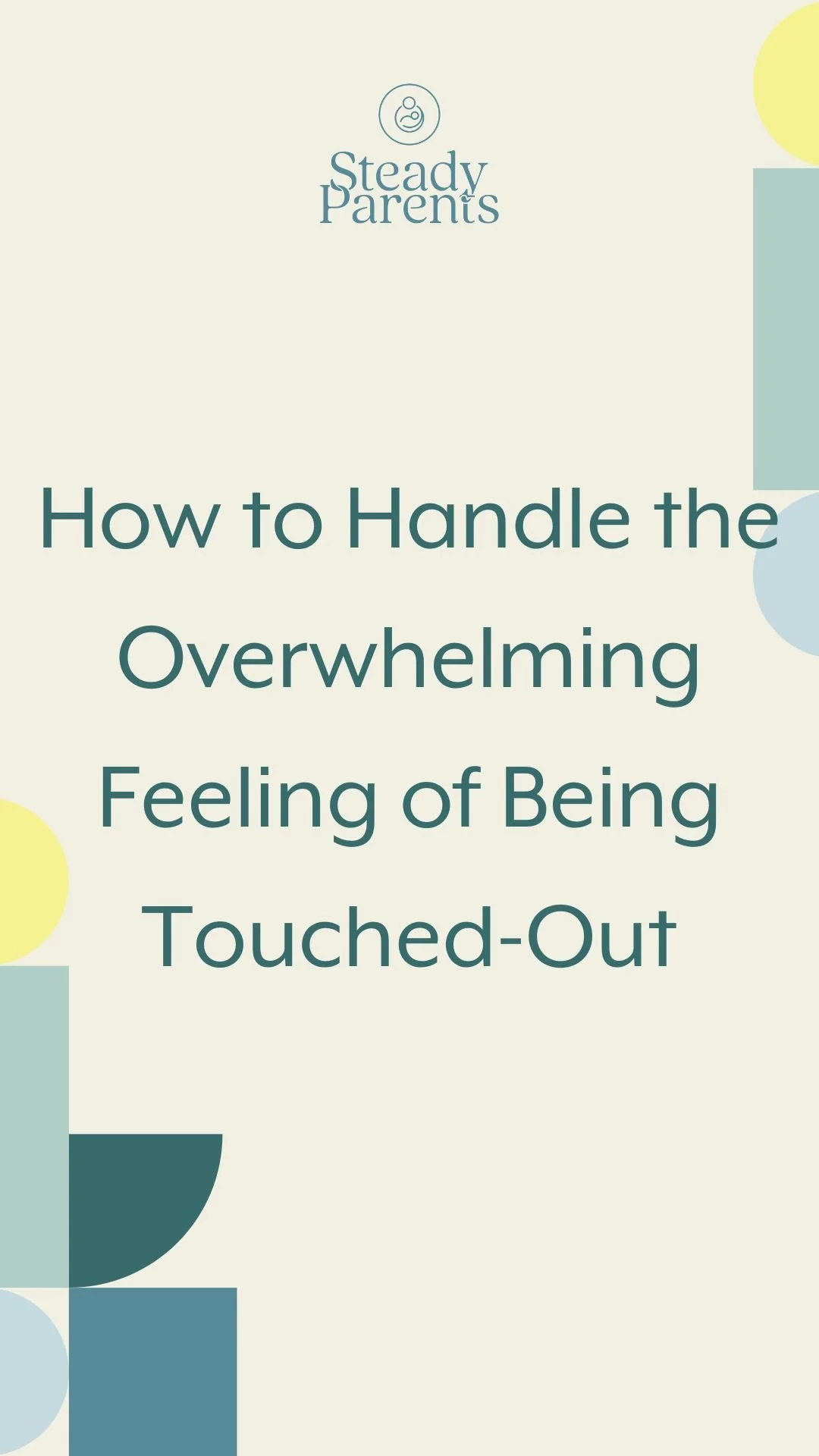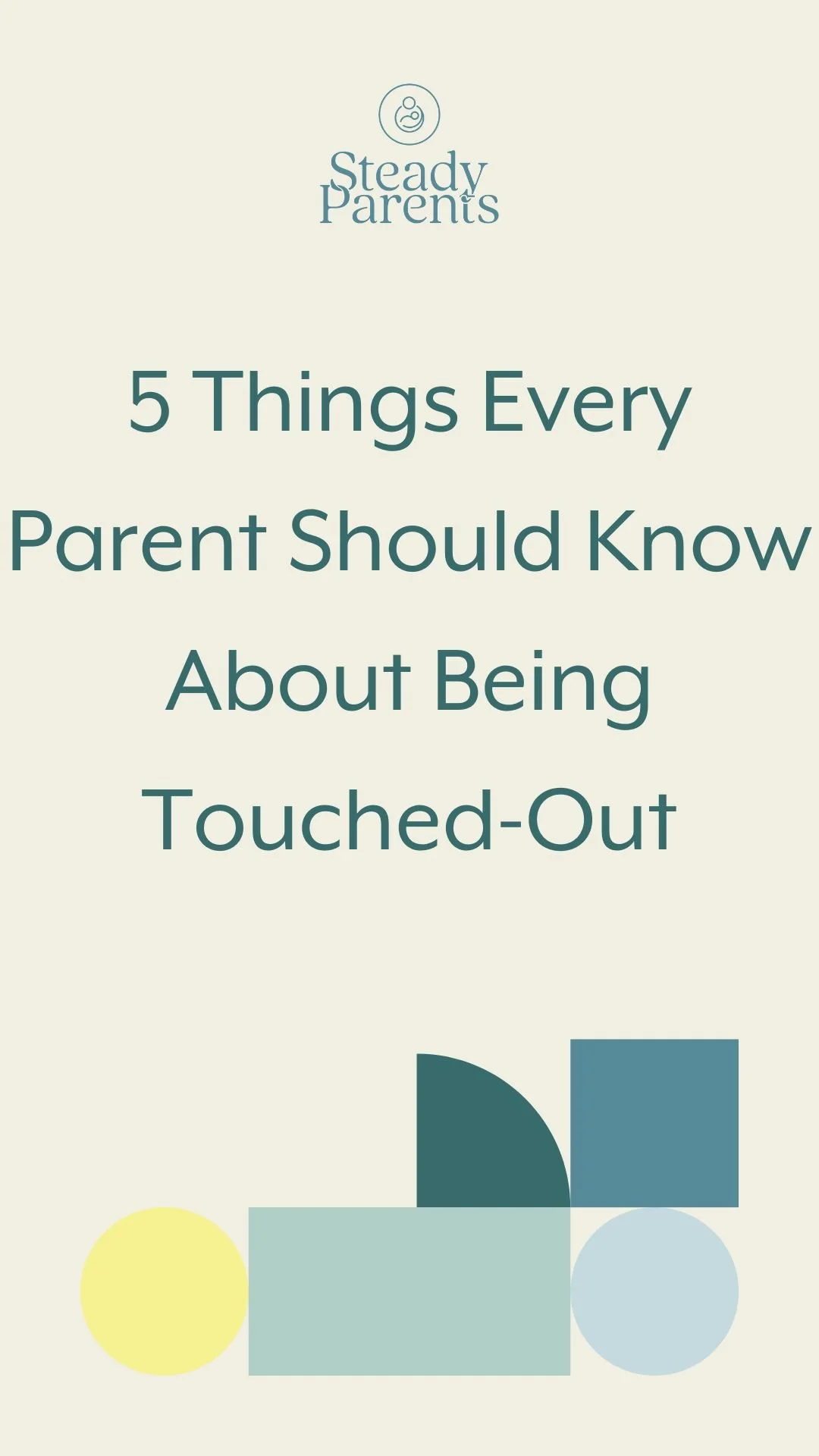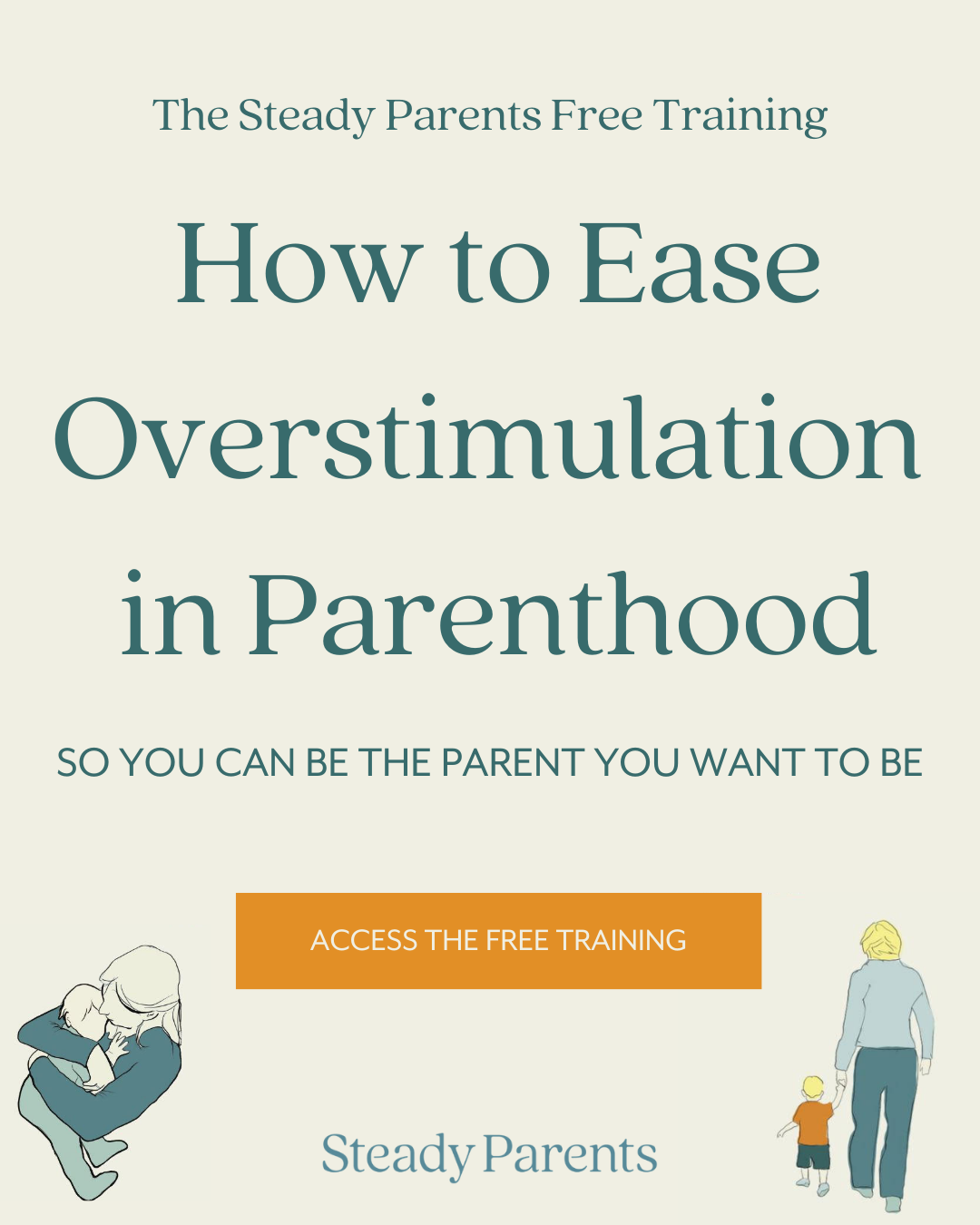Five Things Every Parent Should Know About Being Touched-Out
Overstimulated moms and dads, listen up…
It’s 5:30 pm. You’re putting the finishing touches on dinner, the exhaust vent is buzzing, your body is feeling sweaty from the heat from the stove, and a little hand taps your leg.
You yell, “GET OFF OF ME!”
Instantly, everyone starts to cry. Including you.
When you’re getting overloaded with light touch, especially when you are already overstimulated by sensory input, your nervous system is signaled that it’s in danger. So it’s easy (and normal!) to flip into fight or flight mode, even when you aren’t in true danger.
This is commonly referred to as feeling “touched-out”.
This experience can be a common part of parenthood, when overstimulation from light touch can trigger you to be on edge.
It can also be a surprise when you first experience it, as your reaction to something so seemingly small can be so incredibly big. How can you understand these reactions and support yourself in your parenting experience?
Here are 5 things every overstimulated mom and dad should know about feeling “touched-out”:
1) Nurturing touch is essential to your emotional and physical well-being, even as parents.
The tactile (touch) system is one of the most foundational sensory systems, and deeply supports our sense of safety. It is the second largest sensory system (behind the proprioceptive system), and is the most exposed to the outside world.
Through infant and child development, nurturing touch supports attachment to a caregiver. Because the tactile system can provide so much information about the world, nurturing touch indicates a sense of safety, love, and bonding to an infant. And the benefits of nurturing touch continues through adulthood.
Throughout the day you might be touched what feels like one million and five times, but rarely is it with the intention to love and nurture you. And even if it is, like from your partner at the end of the day, you still might interpret it as dangerous because you are overstimulated. The more active your nervous system is, the more likely you are to interpret touch as dangerous. So a gentle loving caress from a nurturing partner can still feel like pins and needles. You aren’t in a safe, regulated neurological and emotional space to interpret it as compassion.
But, compassionate touch can be one of the most effective gateways to regulation.
“But, compassionate touch can be one of the most effective gateways to regulation.”
2) Constant light touch can send you into a fight/flight/freeze response, and it can be the result of common, everyday interactions.
In addition to a kid tapping your leg while you cook, you may also experience feeling touched-out from a variety of things you normally wouldn’t think twice about that are actually causing sensory overload.
Clothes not fitting right, your messy bun falling out and touching your face, your baby nursing on you, getting spilled on, and even touching a sticky cabinet handle can all overload your tactile system.
3) Deep, consistent pressure can help our tactile system come down from a hyperaroused state if you’re feeling touched-out.
Examples of deep consistent tactile pressure might include a self-imposed massage, lying under a weighted blanket, wearing compression clothing like yoga pants, leaning against a wall or lying on the ground, or even covering your eyes with your palms and pressing firmly.
“Be clear with your partner about how you’re feeling and the things that overwhelm you. ”
4) Feeling touched-out can create challenges for being intimate with your partner.
If you’ve been touched, alerted, and needed all day long, your nervous system will be pushing into hyperarousal level, and it will begin to interpret normally non-noxious (not-harmful) input as dangerous.
So a gentle touch from your partner, even if it’s meant to indicate love and adoration, can’t be neurologically interpreted as safe…because your body doesn’t feel safe.
Be clear with your partner about how you’re feeling and the things that overwhelm you. Explore ways to regulate your tactile system, whether it’s a solo shower to wash the day off, a big bear hug, or even 10 minutes to move your body in a way that feels good to you.
5) Just because parenthood is overstimulating and full of touch doesn’t mean you have to be overstimulated and touched-out.
I know this seems impossible. If you're constantly bombarded by light touch and feeling of sensory overload, how can you manage a life where you're not touched-out? The answer is in your body - it's in you. Sensory integration is a foundational aspect of self-regulation that can create lasting, powerful change.
When you’re feeling touched out, hit play on this free audio guide, and I’ll be there to help.
This audio guide is straight from my signature program, “Sensing Your Needs in Parenthood.”
Inside, you’ll receive access to the entire Sensory Overload Support (SOS) Vault with more audio-guides like this one to move you through the overwhelm, along with all the information you need to understand your sensory needs and how to care for them them, even when under the stress of parenting.
It’s NOT you!
Your sensory system exists to makes sense of your environment and your body, and how they relate to each other.
Grab the Sensing Your Needs in Parenthood course today to learn how to prevent sensory overload.
Pin this for later:









